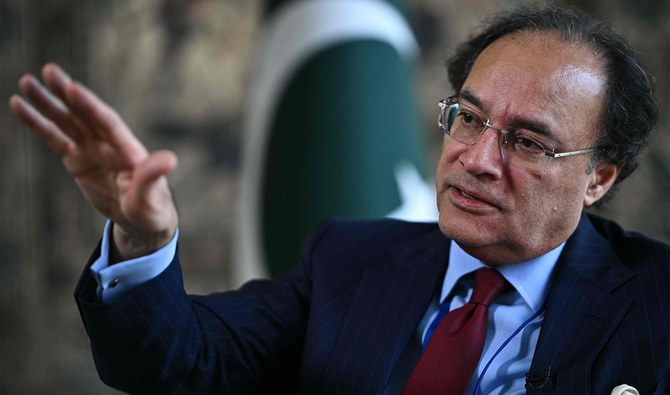Finance Minister Muhammad Aurangzeb has indicated that the Pakistani government does not anticipate significant rupee devaluation during negotiations with the International Monetary Fund (IMF), as reported by Bloomberg.
Currently in Washington to participate in the spring meetings organized by the IMF and the World Bank (WB), Aurangzeb has disclosed Pakistan’s initiation of discussions with the IMF for a new multi-billion dollar loan agreement to support its economic reform program. He mentioned the likelihood of seeking a three-year program.
In an interview with Bloomberg published today, Aurangzeb highlighted that there would likely be no substantial rupee devaluation beyond the typical range of about 6 to 8 percent witnessed in a usual year. He noted that Pakistan last devalued its currency in January 2023.
He emphasized that while significant devaluations had been associated with some of Pakistan’s previous IMF loans, and although they are often a condition of the crisis lender’s programs globally, such measures may not be necessary this time. Aurangzeb cited robust foreign exchange reserves, a stable currency, increasing remittances, and steady exports as factors supporting this view. He mentioned that the only potential wildcard is the oil price, although projections indicate stability in this regard.
The government is also focusing on bolstering various industries, including agriculture and information technology, with the aim of achieving a growth rate exceeding 4 percent in the coming years.
Pakistan faces approximately $24 billion in external financing needs in the fiscal year starting July, but Aurangzeb expressed confidence that the country is in a relatively good position to meet these obligations.
Moreover, Pakistan expects an IMF mission to visit in May and aims to reach a staff-level agreement on the next loan by the end of June or early July, although the specific amount being sought was not disclosed.
Earlier, Aurangzeb met with US State Department officials Donald Lu and Elizabeth Horst, who reiterated Washington’s commitment to strengthening ties between the two countries. Discussions with US diplomats focused on enhancing economic partnerships, particularly in sectors such as alternate energy, agriculture, climate resilience, and the tech industry. Aurangzeb briefed them on Pakistan’s reform agenda, which includes measures to broaden the tax base, streamline the energy sector, and promote privatization.
Additionally, Aurangzeb held discussions with the WB-IMF Pakistan Staff Association, focusing on expanding the tax base, energy sector reforms, digitalization, privatization, and maintaining fiscal discipline to revive Pakistan’s economy and drive sustainable growth.
In another meeting with IMF officials, Aurangzeb reaffirmed Pakistan’s commitment to aggressive reforms aimed at stabilizing its economy. These discussions emphasized the importance of collaboration and capacity-building initiatives for sustainable economic development. Pakistan is seeking a new long-term package from the IMF and has devised a comprehensive economic recovery plan focused on taxation, energy, and privatization. The IMF board is scheduled to convene on April 29 to discuss releasing the final tranche of its current program with Pakistan, with further discussions expected on a new package tailored to Pakistan’s specific needs.




